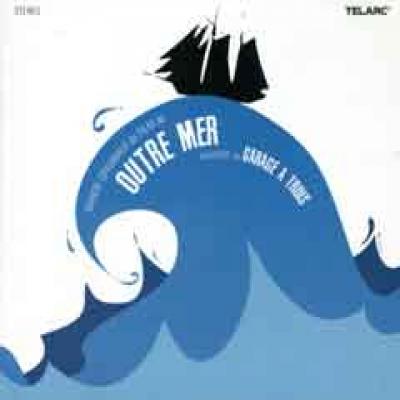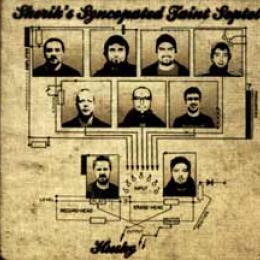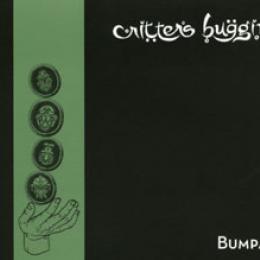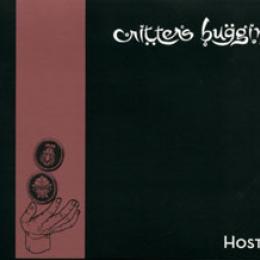Posted by: leeway | August 17th, 2005
Recorded in a studio but performed "acoustic" and on-the-fly, Outre Mer crackles with the bulbous warmth of four instrumental masters playing together live. It's hard to convey the depth of Hunter's bass tones, which seem hard-pressed to originate from the same 8-string-guitar-wielding hands that provide simultaneous melodic accents and rhythmic plucking. Skerik's incredulous sax playing joins forces with Dillon's unique vibraphone runs in a marriage of retro ringing and stylish squonk. Then there are the irrepressible polyrhythms of Moore, always pumping with crisp energy and a tribal insistence.
In its role as soundtrack to a French film that will likely linger in obscurity for years to come, Outre Mer comes equipped with an aura of mystery that matches the sly jazz creations found within. In fact, the whole thing seemed like a well-executed joke until I did some research on the web and found out that there actually is a film called Outre Mer, and it is indeed the story of a dwarf who nurtures vivid dreams of an idyllic life on a distant shore and makes his fantasy a reality through an invention of his own design. The strange story soon takes a decidedly realistic turn, delving into real-life situations of love and death.
Imagining Garage a Trois' pulsating, island-influenced compositions as the kinetic musical backdrop of such a film is perplexing and the fantastic music will inspire listeners to seek out the film, which surely must be as colorful and engaging as the score. We definitely owe a debt to the film for inspiring such deliciously grooving creations as the ones heard here.
As for the songs, they evoke plenty of imagery on their own, and it's easy to get a sense of their place in the film after a little research. "The Dream" is a drumless display of atmospheric melodies from Skerik, as Hunter and Dillon plunk down a backdrop full of vibrating tones. There's the chunky, rolling funk of "Antoine" and the swirling seas of the title track, both of which do their part in communicating the feel of a character or setting from the film. "The Machine" evokes the dramatic inventor's discovery with strident melodies and foreboding rhythms. "Merpati" has a cheerful island bounce and a wickedly tangled rhythm for Skerik to explore. The finale "Amanjiwo" is named after the exotic real-world location where the main character finds his love and perfect life. Amanjiwo means "peaceful soul," and this climactic piece easily lives up to that translation.
This one should be considered for as many awards as it can qualify for. Garage a Trois has created an album that you won't be able to stop listening to once it dazzles your ears for the first time. If there's anything to complain about, it's that the album isn't twice as long. I think I'll remedy that situation right now by listening again!
--Bryan Rodgers
In its role as soundtrack to a French film that will likely linger in obscurity for years to come, Outre Mer comes equipped with an aura of mystery that matches the sly jazz creations found within. In fact, the whole thing seemed like a well-executed joke until I did some research on the web and found out that there actually is a film called Outre Mer, and it is indeed the story of a dwarf who nurtures vivid dreams of an idyllic life on a distant shore and makes his fantasy a reality through an invention of his own design. The strange story soon takes a decidedly realistic turn, delving into real-life situations of love and death.
Imagining Garage a Trois' pulsating, island-influenced compositions as the kinetic musical backdrop of such a film is perplexing and the fantastic music will inspire listeners to seek out the film, which surely must be as colorful and engaging as the score. We definitely owe a debt to the film for inspiring such deliciously grooving creations as the ones heard here.
As for the songs, they evoke plenty of imagery on their own, and it's easy to get a sense of their place in the film after a little research. "The Dream" is a drumless display of atmospheric melodies from Skerik, as Hunter and Dillon plunk down a backdrop full of vibrating tones. There's the chunky, rolling funk of "Antoine" and the swirling seas of the title track, both of which do their part in communicating the feel of a character or setting from the film. "The Machine" evokes the dramatic inventor's discovery with strident melodies and foreboding rhythms. "Merpati" has a cheerful island bounce and a wickedly tangled rhythm for Skerik to explore. The finale "Amanjiwo" is named after the exotic real-world location where the main character finds his love and perfect life. Amanjiwo means "peaceful soul," and this climactic piece easily lives up to that translation.
This one should be considered for as many awards as it can qualify for. Garage a Trois has created an album that you won't be able to stop listening to once it dazzles your ears for the first time. If there's anything to complain about, it's that the album isn't twice as long. I think I'll remedy that situation right now by listening again!
--Bryan Rodgers






